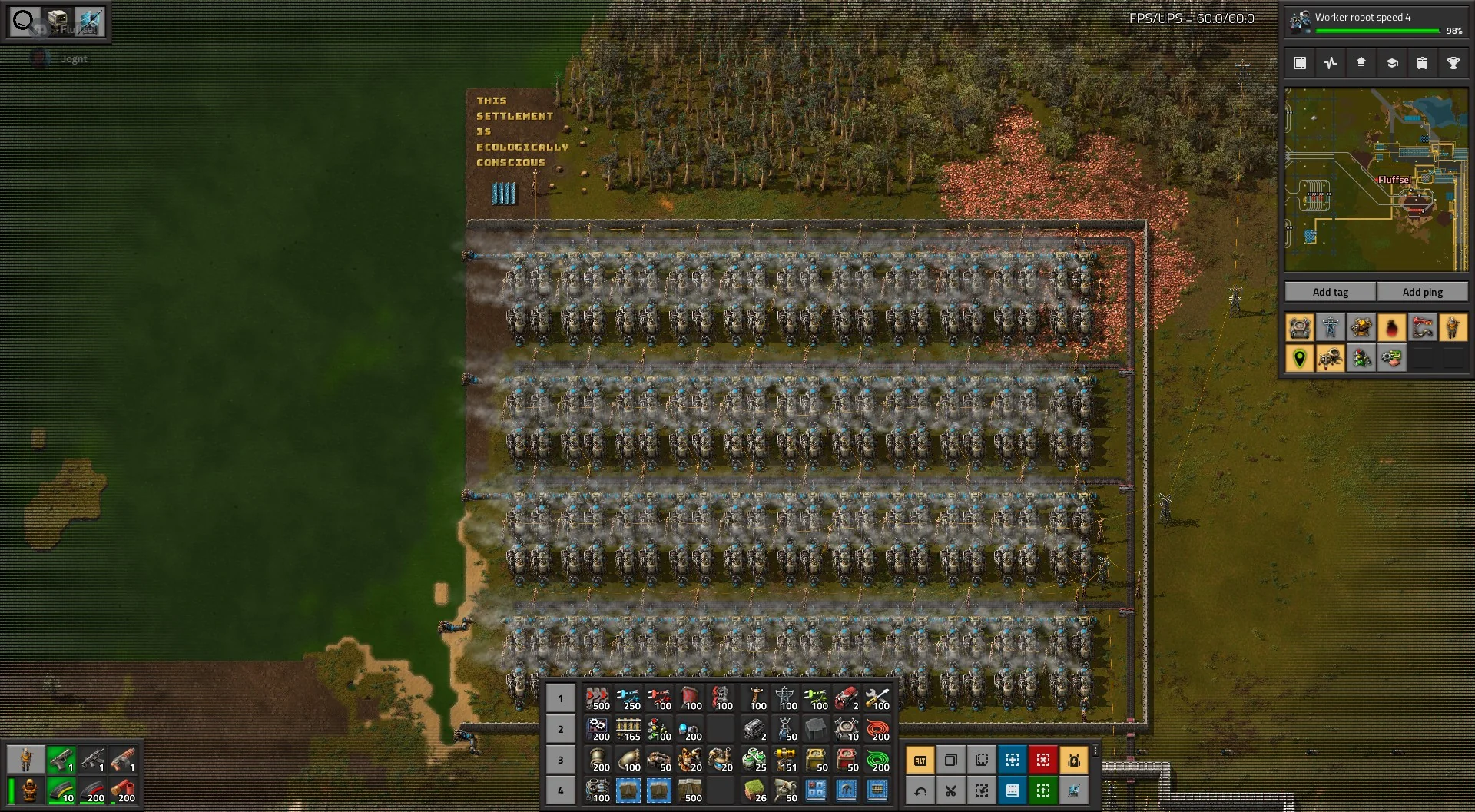
3 min read
Digital Sustainability and LLMs
This week I experienced:
- Dinacon 2024 - a yearly conference about digital sustainability
- Playing the game Factorio Space Age
- Not having access to Codeium and therefore writing code “offline”
- Not being able to buy an H100 GPU
And even though these events seem unrelated, I think they have a lot in common. This is all about over consumption and resource availability. Let me elaborate …
Power for the hungry
At Dynacon there was a lot of talk about how tech companies and the tech industry can use any amount of power to train their large language models (LLMs) without being accountable to the actual usage of them.
To train a model you need a lot of graphics processing units (GPU). That is why Nvidia is now one of the most valued companies. However, at the time of writing, it is not possible to buy the popular GPU H100. At least for small companies. It seems big tech can have all the shiny gpus that they want.
Acquiring these resources to compute is limited, but once you have the means to compute there are no limit. This fact presents itself in stark contrast to the climate crisis. Over consumption of common resources is the main cause for the climate crisis.
Put on shackles
Why don’t we apply the same limit to resources to the tech industry as we already do for other industries (transport, automotive, electronics, …)? This sure is a difficult question. My current assumption is that we simply depend on the tech industry too much. They themselves claim that “they are too big to care”.
Internet lock-in
When coding I am using an LLM as a Service. My code editor sends the code that I am typing to an API and it returns a completed version of the code. This is a powerful way of coding. However, when I found myself coding without internet connection I instantly felt powerless. I relied on this service to complete my code. And this is now how I want to lead!
Taking the lead
Taking the leadership in this context is taking the full responsibility and accountability for the used services. To simply depend on a service and buy the responsibility for a monthly subscription is not the way. We have to take the lead when it comes to solving real world problems.
The solution
What I am trying to explain here can be simulated in games. In Factorio you build, automate and expand a factory that produces goods with growing complexity. The game constantly confronts you with resource limits and attacks on the factory. When producing too much pollution the inhabitants of the planet will try to destroy the factory. You can choose to produce sustainable energy (which is hardly enough to run the factory) or improve the defensive capabilities.
So much about the game. But, what it makes really interesting is the fact that you can play this with many friends. You have to cooperate, negotiate and make difficult decisions. Not often you end up arguing about a virtual blueprint of a non-existing part of the factory. You have to build a complex train network and share the workload to build this among the players. The tasks don’t feel fullfilling and some would say playing Factorio can feel like work. This all seems ridiculous at first glance, but the process of solving these problems within those game parameters, can produce meaningful strategies for the real world.
What this is all about
We cannot prompt our way out of the climate crisis. We have to take responsibility for the tools that we are using and the impact they have on our ecosystem.
Categories: TechnologyTags: llm , digitalisation , sustainability , climate , crisis
Edit this page
Show statistic for this page